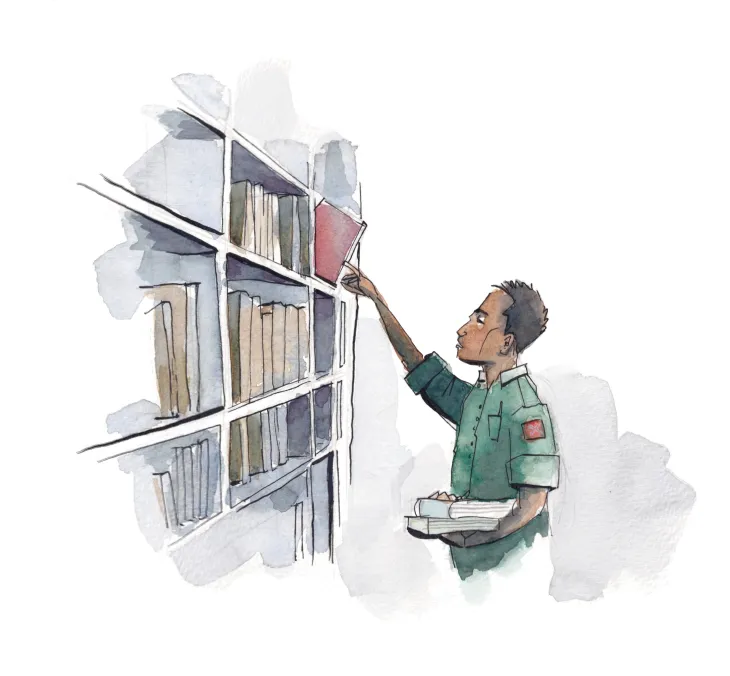In Part 1 of a 3-part special series by Real Stories Not Tales (RSNT), Hpare Salum (pseudonym) decides it is time to go back home.
This story tells the journey of a Kachin youth based in Yangon who chooses to go back to Lai Zar and join the KIA post-Coup. Hpare Salum recently finished an internship after having graduated in Yangon. He was interviewed on April 17 in Kachin State.
I had already experienced something similar in the past, so I knew this was happening for real. I felt hopeless. I felt destroyed. I felt as if my future had been stolen from me.
When the coup happened, I was staying with my school‘s] seniors in Hlaing Township, Yangon. One of them was going to attend his first day at work and while he was getting ready, the leader of his organization called him and informed him about the coup. That’s how we found out that the military had seized power and cut all networks. I had already experienced something similar in the past, so I knew this was happening for real. I felt hopeless. I felt destroyed. I felt as if my future had been stolen from me.
Just before the coup, I had gotten a job in Yangon, and was planning to gain more work experience in preparation for my studies abroad. But I knew this wouldn’t be possible under a military regime, so I decided to go back to Kachin State. Most of my school comrades chose to stay and participate in the protest movement in Yangon, but honestly, I had no intention of doing that. I was certain that the military would do anything to stop the protests. I know this military junta and I know that they are capable of committing the worst atrocities. In 2011, they shot a friend of mine and a relative, and I didn’t want to live through anything like that again.

We, the Kachin people, have been bullied since we were born, never receiving any support from the central government and even less so from the military. When the ceasefire between the KIA and the Myanmar military collapsed, I was in Grade 9. On June 22nd, 2011, the military came to our village. It was a devastating experience: we had to flee and stay in the jungle on the Chinese border for days. In the end, this place became a camp for IDPs, including me and my family.
The camp leaders managed to build a school with the very few resources available, which is how I was able to carry on with my education. Most young people and adults were asked to join the KIA, and so my father became a soldier. I lived with my mother, my younger brother, and two sisters in the camp. My three other siblings stayed in Myitkyina. In 2016, we had to flee again, because the military engaged in mortar shelling of an area nearby. Having fled civil war twice in my life, I don’t like the military junta at all—to put it mildly. I think non-violence works in some parts of the world, but it doesn’t work in Myanmar.
Now I’m staying in a new city-state on the Chinese border called Laiza, where the headquarters of the KIO are. The city is in a valley, and you only need to cross a river to get into the Chinese territory. Everything you need can be found in Laiza: hotels, restaurants, shops, schools (providing free education), and hospitals (providing free health care). You can use both Myanmar kyats and Chinese yuan here. It’s a safe place. There is no CDM in this area, but many CDM people from the rest of the country are coming to find refuge here or to join basic military training. I heard most of the training is given in Burmese. There are also many young Kachin people coming to Laiza, some to serve the KPICT.
My personal hope for the future is still to study abroad, but it has been a real struggle, and I am tired of trying. Right now, I need to help my people. If I need to engage in combat, I will; I can’t avoid it. Many Kachins have become actively involved in the KIO or its army. Having an independent state is the dream of Kachin people and I wish to be a part of the generation that will see this dream come true. We need to stand for what we believe in; we have that responsibility. I know there will be many challenges on this journey to freedom, but we will fight until we achieve independence. I believe that the KIO will be one of the leaders of real political change in Myanmar.
Speaking to the international community, I would like to ask them to recognize Myanmar’s EAOs and the systems of governance they have established in their respective states and regions, including the education systems. I wish the world would cooperate with the EAOs, since Myanmar’s ethnic people see them as their legitimate governments. In reality, these EAOs represent the voice of ethnic people.
Real Stories Not Tales (RSNT) is a dedicated team in and out of Myanmar that aims to bring awareness to the reality of young people’s lives since the Myanmar military staged a coup on February 1st, 2021. Stories are collected through interviews with each protagonist by the team, either in Burmese or in English. Each character is drawn by a professional illustrator bringing a visual context to the story. The RSNT report also proposes some tips on how it is possible to support Myanmar these days. They are pleased to share selections from their first report and are now in the process of collecting more stories all around the country.
Like This Article
April 09, 2024
March 20, 2024
February 22, 2024

Center for Southeast Asian Studies, Asian Institute 1 Devonshire Place Toronto, Ontario, M5S 3K7, Canada
©TeaCircle All Rights Reserved 2023